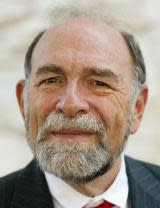Our faith and language: The holy tongue

A Hasidic story relating to the season of penitence and atonement recently observed in the Jewish community tells of the unlettered young shepherd boy, who, toward the end of the daylong prayers and rituals of Yom Kippur, when his father’s attention was momentarily diverted, took out his shepherd’s whistle and sounded a loud and joyous note. The congregation was horrified at this disruption to the decorum of the holy day, and the boy’s father was embarrassed. The rabbi leading the worship services, however, quieted the congregation and shared with them the feeling that he had had throughout the day that the people’s prayers were not ascending to heaven and that it was only the boy’s sounding his whistle, a gesture done in sincerity and purity of heart, that had succeeded in opening the gates of heaven. Feelings of awe in the presence of mystery, of contrition for past wrongdoing and earnest desire to atone, of gratitude, of yearning for the Divine, and of love for God and God’s creatures can sometimes express the spirit and mood of prayer better than the most eloquent and finely wrought words of the liturgy.
And yet language does have an important role in the spiritual life of faith communities. Whether it is the language of Scripture – in the form of narrative, law, prophecy, poetry or wisdom – or the language of worship, for those of us who pray according to a fixed liturgy, the written and spoken word have the power to teach, to challenge, to uplift, and to express our most intimate emotions and aspirations.
Previous column:Rabbi Barry Marks: Letting go of the past
For Jews, the language we associate with both prayer and Scripture is Hebrew, and therein lies a long and fascinating history. Hebrew was the spoken tongue of ancient Israel and Judea and, with the exception of the book of Daniel, the language of the Jewish Bible. Over the centuries, when Jews were using other languages in their daily life and in their interactions with non-Jewish neighbors, Hebrew remained leshon ha-kodesh, the holy tongue, used both in synagogue worship and in religious education and scholarship.
For much of Jewish history, Jews were often bilingual or trilingual. From the time that Jews returned to the land of Israel from the Babylonian Exile (6th and 5th centuries BCE) down to the Arab conquests of the 7th century CE, the spoken day-to-day language of most Jews was Aramaic, a Semitic tongue cognate to but distinct from Hebrew that was the common language of the Middle East in late antiquity. Prominent and well-to-do Jews in Hellenistic and Roman times may additionally have spoken Greek. Scripture was read publicly in Hebrew but accompanied by an Aramaic translation known as Targum, and, when, after the destruction of the Temple in 70 CE, communal prayer became the substitute for sacrificial offerings, Hebrew was the language in which congregations worshipped. The Mishna, the codification of post-biblical legal traditions published around 200 CE, was written in Hebrew, as were the Midrashim, homilies and commentaries on Scripture. Discussion and analysis of the Mishna in the academies of Babylonia and the land of Israel, which were to constitute the bulk of the Talmud, however, were carried on in Aramaic.
Hebrew continued through the centuries as a language of prayer, of religious literature, and of communication between scholars but had already in antiquity ceased to be an everyday spoken language. And then … in the nineteenth century prominent writers of the Jewish Enlightenment movement began writing novels, stories, essays, and poetry in Hebrew and creating a modern literature; and Jews who had settled in the land of Israel, most prominently Eliezer Ben Yehuda, devoted their efforts to making Hebrew a living and spoken language again. Their success is attested to by Hebrew’s status as the official language of Israel and by the vibrant culture – films, songs, journalism and literature – produced in that language.
Meanwhile, we outside of Israel use Hebrew in our prayers, read Scripture during worship from a handwritten scroll in Hebrew, and endeavor with varying success to teach the language to our children – at a minimum, ability to decode and sound out the letters and familiarity with a basic vocabulary of religious concepts.
Praying and hearing Scripture read in Hebrew has an emotional resonance for me. Many of the words used in worship have nuances that cannot be readily translated into English. Hebrew for us is a link to our beginnings and to an ancient heritage that we are striving to uphold and a connection to Jewish communities around the world.
Rabbi Barry Marks is rabbi emeritus of Temple Israel in Springfield.
This article originally appeared on State Journal-Register: Our faith and language: The holy tongue
